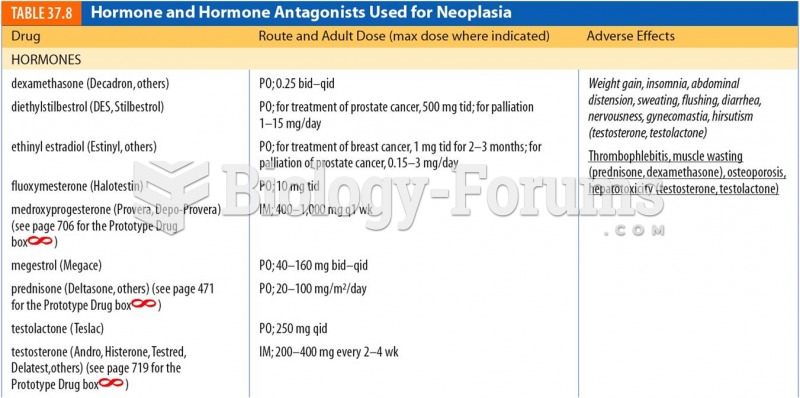|
|
|
In the United States, an estimated 50 million unnecessary antibiotics are prescribed for viral respiratory infections.
A strange skin disease referred to as Morgellons has occurred in the southern United States and in California. Symptoms include slowly healing sores, joint pain, persistent fatigue, and a sensation of things crawling through the skin. Another symptom is strange-looking, threadlike extrusions coming out of the skin.
The heart is located in the center of the chest, with part of it tipped slightly so that it taps against the left side of the chest.
There are more nerve cells in one human brain than there are stars in the Milky Way.
When blood is exposed to air, it clots. Heparin allows the blood to come in direct contact with air without clotting.







